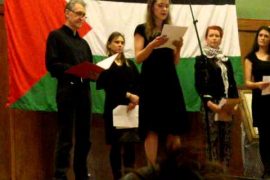1) The ITIC provides a report on the ‘Deterioration of the security situation along the Gaza Strip border’.
“At the beginning of August 2020, after about six months of relative quiet, Hamas initiated a wave of violence from the Gaza Strip, renewing the use of its strategy of controlled violence against Israel. So far, the current wave of violence focuses mainly on the daily launching of IED and incendiary balloons. During the nights of August 15 and 16, 2020 the balloon launchings were accompanied by riots at the border fence. Balloon terrorism and the riots were waged by designated units of Hamas and the other terrorist organizations specializing in such patterns of violent activity.
The deterioration of the security situation began with a rocket launched at Israel’s southern city of Sderot on August 2, 2020, at a time when many residents were watching a movie at the city’s new drive-in. The rocket attack was followed by a renewal of balloon terrorism. The IDF responded by attacking Hamas targets and exerting other pressure.”
2) At the INSS Eldad Shavit and Sima Shine give their analysis of the UNSC’s rejection of the US draft resolution to extend the embargo on arms sales to Iran.
“The date for the embargo’s removal was stipulated in Security Council Resolution 2231, which strengthened the nuclear deal and defined sequences of relevant ensuing actions, including the timeline for removing curbs imposed on Iran in previous years. US allies – Britain, France, and Germany – which are also parties to the deal and which abstained on the US draft resolution, have clarified that they, too, worry about possible consequences of the embargo’s lapse, but given the anticipated Russian and Chinese veto, prefer to abstain in voting and pursue dialogue with Iran on future limits.”
(for more on the subject of ‘snapback’ see Richard Goldberg’s FAQ at the FDD)
3) At the Times of Israel, Haviv Rettig Gur argues that ‘The Palestinians weren’t betrayed by the UAE. They were simply left behind’.
“Moments of profound frustration can spark anger and inspire conspiracy theories, but it’s not a conspiracy that has the Palestinians over a barrel. It is a long-delayed reckoning with one of the most bitter facts of their situation: that the Arab world has always been more concerned with Palestine as a symbol than with Palestinians as human beings.
The vision of “colonialist” Israelis stampeding over a weak, hapless Arab people was for many Arab thinkers and political leaders a stand-in for anxieties about the larger and older Arab weakness in the face of Turkish and European dominion and imperialism. Nowhere was Arab weakness in the modern age reified more viscerally than in the slow-moving but seemingly implacable failure of the Palestinian cause. It is that symbolism, what Palestine said about their own stories and identities, and not Palestinian suffering itself, that made anti-Semitism a majority doctrine even in places like Algeria, an Arab nation that hasn’t seen a Jew for nearly 60 years.”
4) Jonathan Spyer explains how ‘Hizballah’s ‘deep state’ prepares to investigate itself’.
“The head of the country’s most powerful security organ, the Directorate of General Security (GSDG) is General Abbas Ibrahim. Ibrahim is a close ally of Hizballah. This is no great secret in Lebanon. Abbas Ibrahim is close to and appears regularly in public with Wafiq Safa, the head of Hizballah’s security apparatus. Safa, meanwhile, as described by Lebanese Druze leader Walid Jumblatt with admirable simplicity, ‘decides what the army and security forces can do.’ […]
The GSDG, as the main internal security service, is set to play a prominent role in the internal investigation of the explosion at the port.
Ibrahim’s friend and comrade Wafiq Safa, meanwhile, was described by the US Treasury Department in July 2019 as having ‘exploited Lebanon’s ports and border crossings to smuggle contraband and facilitate travel on behalf of Hizballah, undermining the security and safety of the Lebanese people, while also draining valuable import duties and revenue away from the Lebanese government.’ That is, Hizballah’s deep state is about to investigate itself.”





